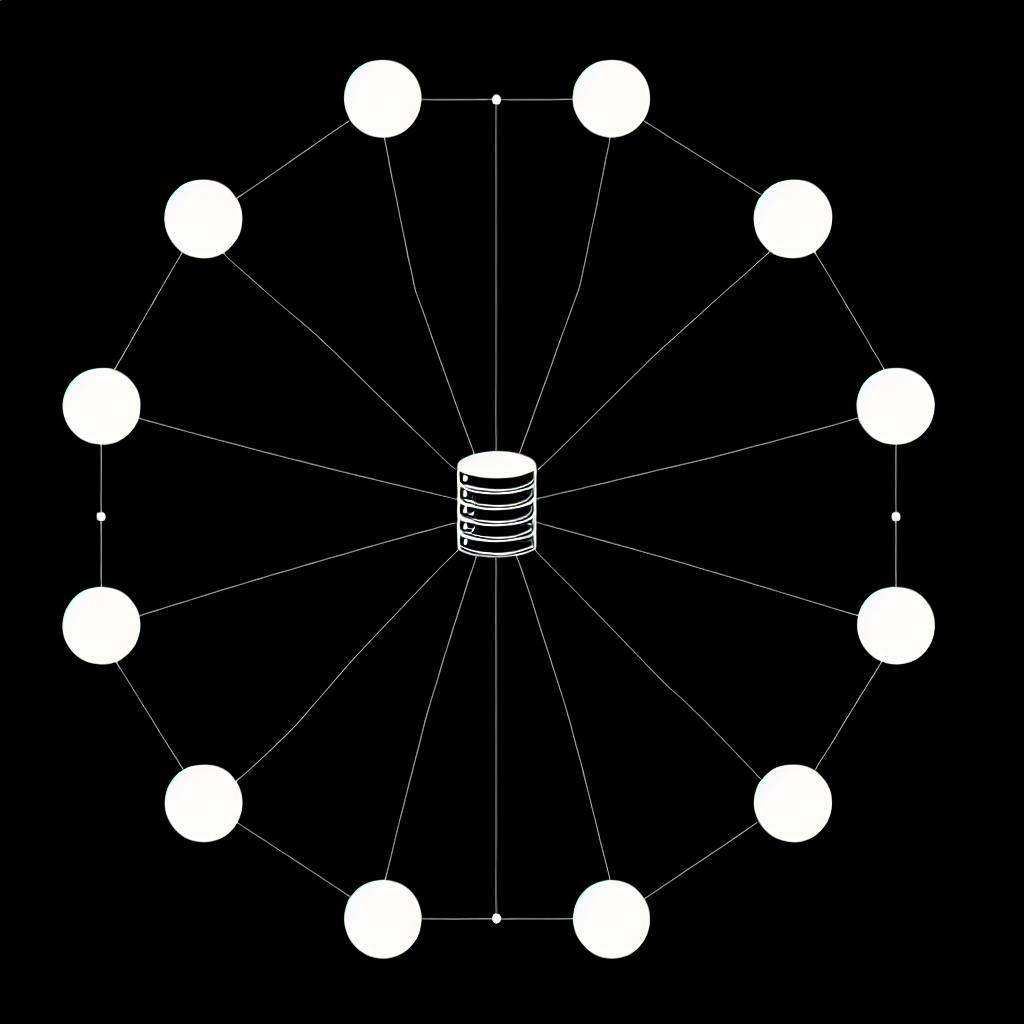Expecting parents universally wonder what their child will look like and how their lives will change.
OurBabyAI aims to give parents an unprecedented glimpse into their future using AI to generate images of what their baby may look like.
In this article, we'll explore the capabilities and ethical considerations around this new application of AI for family planning and bonding.
Introduction to OurBabyAI: Envisioning the Future with AI
OurBabyAI is an application that uses AI to give future parents a glimpse of what their child could look like. While the technology is exciting, there are ethical considerations around using AI for parenting that should be discussed.
Understanding OurBabyAI's Vision for Future Parents
OurBabyAI aims to enhance the parenting experience by allowing parents to see an AI-generated image of their future child. This "child glimpse" is created by having users upload photos and entering other details about themselves and their partner. OurBabyAI then uses generative AI to create a realistic baby photo.
Some key features of OurBabyAI include:
- AI baby filter to show possible child images
- AI baby name generator to suggest suitable names
By seeing their future child, parents can start bonding and imagining life with their baby earlier. However, the accuracy of these projections varies.
The Mechanics of AI-Generated Baby Projections
OurBabyAI uses a type of AI called generative adversarial networks (GANs) to create images of users' future children. GANs are trained on thousands of real baby photos to understand facial features, expressions, poses, etc.
When users provide their photos and details, OurBabyAI selects relevant images, identifies patterns, and creates a new synthesized image reflecting the parents' genetics. This cutting-edge technology enables creating realistic baby projections.
However, GANs can perpetuate biases if the data isn't diverse enough. More research is still needed to improve accuracy and mitigate unfair bias.
Navigating Ethical Terrain: The Implications of AI Parenting
While seeing future children is exciting, using AI to generate kids raises ethical questions around:
- Attachment to AI-generated images rather than reality
- Unrealistic expectations of children's appearance
- Exacerbating societal pressure on parenting
OurBabyAI and similar tools should be careful not to promote perfectionism or enable parents to select preferred physical attributes in offspring.
More broadly, AI may impact how society perceives parenting roles and responsibilities. Continued oversight is necessary as this technology evolves.
In summary, OurBabyAI offers an intriguing vision of AI enhancing future parenting. But we must be mindful of the ethical terrain when incorporating generative AI into family planning.
How would our baby look like AI?
Baby Predictor is an AI baby generator app that uses facial recognition algorithms to predict a baby's appearance based on photos of the parents. Here's a high-level overview of how it works:
- Users upload clear photos of both parents to the app
- The algorithm analyzes facial features like eyes, nose, mouth, face shape, etc.
- It combines these features mathematically to generate a baby face
- Multiple baby predictions can be created to compare possible outcomes
- Images can be shared with friends and family for entertainment
Some key things to consider:
- The technology is not 100% accurate but aims to provide a general idea
- Ethical issues around realistic fake baby images need examination
- Entertaining baby predictions can still be positive if done lightheartedly
- Further advancement of AI facial analysis has many applications
In summary, Baby Predictor uses AI and facial recognition to create baby predictions for entertainment purposes. As with any new technology, ethical considerations around privacy and realistic media are important to discuss. When used appropriately, it can be a fun way for expecting parents to imagine their future child.
Is there a free baby face generator?
Yes, we offer a free baby face generator that allows users to upload photos of the mother and father to see an AI-generated prediction of what their baby could look like.
To access the free baby face generator:
- Click the "Try Free Baby Generator" button on the home page
- Upload clear photos of the mother and father
- Our AI algorithm will process the photos and generate a baby prediction image in just a few seconds
The free baby generator uses state-of-the-art deep learning techniques to analyze facial features and genetics to produce a realistic baby photo. While not 100% accurate, it aims to provide future parents with a fun glimpse of what their child could look like based on the parent images provided.
We also offer premium baby generation services with additional features like the ability to tweak parameters and generate multiple baby images. However, the free baby face generator gives users a chance to test out the core functionality before upgrading.
Let us know if you have any other questions! We're always seeking to improve the accuracy and capabilities of our AI baby generator.
How do you see what my kids will look like?
OurBabyAI uses advanced AI and generative models to create a realistic visualization of what a child from two parents might look like.
Here's a high-level overview of how it works:
- Users upload photos of the prospective parents
- The AI analyzes facial features like eye color, hair color, face shape, etc.
- It combines these genetic traits based on principles of heredity
- An image is generated showing a glimpse of the potential child
This gives users a fun peek into the future. However, there are some important caveats:
- The visualization is just an estimate and not a guarantee
- Many factors can influence a child's looks beyond genetics
- The technology should be used for entertainment, not family planning
There are also ethical considerations around applications like this. Issues like data privacy, responsible AI practices, and potential societal impacts need examination.
Overall these AI baby generators offer an intriguing but imperfect look at what future children may look like. Balancing innovation with ethical questions is key as the technology continues advancing.
How do you use Remini for baby AI?
To use Remini's AI photo generator for envisioning your future child:
- Download and install the Remini app on your phone
- Open the app and go to the "AI Photo Generator" section
- Upload a mix of 8 photos showing both you and your partner's faces from different angles
- Remini will analyze the photos and generate an image blending your facial features to showcase a glimpse of what your child could look like
Some tips for best results:
- Use clear, high-quality photos with good lighting and no obstructions
- Mix close-up and full face photos
- Include both individual and couple pictures
- Show different expressions and angles in the reference photos
The AI algorithm will process and combine your facial attributes to output a realistic envisioning of your potential baby. Keep in mind this is just an estimate for entertainment purposes. Every child is unique!
While fun, also consider the ethical implications of technologies purporting to predict human lives and identities before they are even conceived. Proceed mindfully.
sbb-itb-5683811
Experiencing OurBabyAI: From Photos to Future Baby AI
OurBabyAI allows users to upload photos of parents and see AI-generated images of what their future child could look like. This innovative application provides a glimpse into the future using advanced generative AI technology.
The Process of Uploading Parental Imagery
Uploading photos to OurBabyAI is simple. Follow these steps:
- Visit ourbabyai.com and create an account
- Upload clear photos of both parents
- Customize any attributes you want the baby to have
- Let OurBabyAI work its magic!
The more photos provided of the parents, the better the AI model can generate images. Make sure to upload high quality photos that clearly show facial features.
Customizing Your Future Child's Traits
Once photos are uploaded, you can customize attributes of your future baby including:
- Hair color and style
- Eye color
- Skin tone
- Facial features like nose shape
- Gender
Adjust any characteristics you like or leave it up to the AI to decide. It's fun to try out different combinations!
Reveling in the AI-Generated Glimpse of Your Child
After processing the parental photos and customizations, OurBabyAI will generate a gallery of images showing possible babies. You can scroll through and see the range of results.
Save your favorite images and share with family and friends! The images can also be downloaded and used as you wish.
OurBabyAI gives a unique peek into what future children may look like. Though not 100% accurate, it's an entertaining way to consider possibilities using the latest AI.
Beyond Visualization: OurBabyAI's Suite of Parenting Tools
OurBabyAI provides a variety of AI tools to support expecting parents throughout their parenting journey.
Finding the Perfect Name with AI Baby Name Generator
The AI baby name generator allows parents to input preferences like origins, meanings, and styles to get personalized name suggestions. By analyzing data on existing baby names, it can recommend uncommon or up-and-coming names that fit the parents' criteria. This saves parents time instead of endlessly searching through baby name lists.
Forecasting Developmental Milestones with Future Baby AI
Using predictive analytics, OurBabyAI forecasts the timing of future developmental milestones based on aggregated data. It creates a timeline previewing motor, speech, and social skills the baby will likely develop from birth through toddlerhood. This helps parents know what to expect and be proactive in encouraging their child's growth.
Timely Guidance as the Due Date Approaches
As the due date nears, OurBabyAI sends weekly updates with health tips and notifications to help expecting mothers prepare. Once the baby arrives, it continues providing relevant guidance about postpartum care and adjusting to life with a newborn using AI-generated content. This level of personalization makes the transition smoother for parents.
Insights from OurBabyAI Creators: The Promise and Pitfalls
Fostering Early Bonds: A Developer's Hope
Developers of AI parenting applications believe these technologies can help parents form an emotional connection to their future child before birth. By providing a glimpse of what the child may look like through AI-generated images and videos, parents have the chance to visualize their future family. This early bonding opportunity is intended to be a positive experience.
However, developers must consider the emotional complexity of these AI interactions. Attachment to an AI-generated child that does not yet exist in reality may lead to unintended consequences. Responsible innovation and ethical guidelines are necessary to ensure these tools are used cautiously.
The Emotional Complexity of AI-Generated Offspring
While seeing an AI rendering of one's future child may seem harmless at first, the emotional bonds formed with simulated offspring could have psychological risks. As the AI toddler generator outputs images and videos that bring the child to life, parents may begin projecting hopes, fears, and attachments onto this digital representation of their future son or daughter.
If parents' expectations and emotional connections to this AI-generated child do not match reality when their actual child is born, there could be negative emotional consequences like disappointment, resentment, or a weakened parent-child bond from the start.
Advocating for Ethical Development in Generative AI
The developers of AI parenting aids like OurBabyAI have an ethical responsibility to consider the emotional well-being of their users. As generative AI continues advancing rapidly, ethical guidelines and responsible innovation practices are crucial.
AI developers should follow established practices of informing users about the limitations of generative systems to set appropriate expectations. Transparency about the AI's capabilities helps prevent forming unhealthy emotional attachments. There also needs to be caution taken not to exploit vulnerable people hoping to connect with a future child.
Moving forward, the AI community must self-regulate and advocate for ethical standards focused on the human impact of technologies like AI baby generators. With thoughtful development guided by compassion, these tools can still have much to offer future parents.
The Ethical Debate: Child Experts on OurBabyAI
The Risk of Setting Unrealistic Expectations
Child development experts caution that AI baby filters like OurBabyAI could set unrealistic expectations for parents regarding their future child's appearance. Seeing an AI-generated image of a baby with certain features may lead parents to be disappointed if their actual child looks different. This could negatively impact family dynamics.
However, creators of these technologies counter that they are meant for entertainment purposes only. Clear disclaimers state the previews are not intended to be accurate predictions. Responsibility lies with parents to manage expectations appropriately.
Overall, experts recommend approaching such AI filters with a spirit of fun and imagination rather than viewing them as glimpses of reality. Maintaining reasonable expectations can help avoid potential conflicts down the line.
Potential Impact on Parent-Child Bonding and Birth Mystique
Some child psychologists theorize AI baby previews could detract from the natural bonding process between parent and child. Traditionally, the appearance and personality of a baby has an element of exciting mystery leading up to the birth.
Seeing an AI approximation ahead of time may diminish that mystique and weaken early bonding which relies partly on new parents discovering their real infant for the first time.
However, others note many expectant parents already use ultrasound images and genetic screening to gather information prior to birth. AI baby generators are not entirely different and may even stoke more anticipation.
More research is needed, but experts overall recommend embracing the magic of first meetings while understanding the technology's limits.
Crafting Ethical Guidelines for AI in Parenting
As AI tools like OurBabyAI continue advancing, child advocates emphasize the need to develop ethical rules governing their use. Areas of focus include:
- Ensuring diversity and inclusion of all family types/structures
- Prioritizing child well-being over profits
- Transparently conveying capabilities and limitations
- Safeguarding child privacy/data
Multi-disciplinary teams including parents, AI experts, child psychologists, sociologists, and policymakers may be best suited to propose comprehensive guidelines.
Overall, a balanced approach can allow for innovation while protecting vulnerable groups. Consultation with children themselves will be crucial in determining appropriate applications. The consensus is that AI should ultimately enhance rather than undermine healthy childhood development.
The Evolution of AI in the Realm of Parenting
As AI technology advances, its applications in parenting are poised to become more intricate and widespread, offering both exciting possibilities and challenging questions.
Envisioning the Next-Gen AI Toddler Generator
Emerging generative AI models like DALL-E and Stable Diffusion can already generate highly realistic images and videos. As these models continue to improve, they may one day produce interactive AI representations of children that can simulate personalities, behaviors, appearances, and even aging over time.
Potential capabilities could include:
- Generating 3D avatars based on parent DNA and preferences
- Mimicking speech, movement, and mannerisms
- Responding conversationally using natural language processing
- Displaying emotional range and personality traits
- Aging the AI over months and years
Such technologies would allow parents to preview potential children and make more informed family planning decisions. However, ethical considerations around data privacy, emotional attachment, and the "commodification" of children will need to be addressed.
Broadening Horizons: Accessibility and Personalization
Advancements in AI may eventually provide more affordable and customized child previews to a wider demographic. Rather than a luxury for the wealthy, these technologies could become commonplace for expecting parents across economic backgrounds.
Additionally, AI child generators may allow unprecedented levels of personalization based on parent preferences regarding:
- Gender
- Physical attributes like hair/eye color and skin tone
- Personality and behavioral tendencies
- Talents, abilities, and interests
- Health factors and genetic predispositions
This could allow more parents to "design" their ideal future child. However, such customization presents ethical issues around eugenics and the fair treatment of all children regardless of their traits.
Upholding Ethical Practices in AI-Driven Parenting
As AI further enables the visualization and even customization of potential children, regulations and ethical guidelines will be needed to prevent misuse. Considerations include:
- Restricting unrealistic or harmful genetic editing
- Managing emotional attachment to AI representations
- Securing user data and child privacy
- Promoting accessibility for all income levels
- Ensuring non-discrimination and equal treatment
Overall, the exciting potential of AI in parenting must be balanced with social responsibility. Through proactive governance and corporate ethics programs, the societal benefits of these emerging technologies can be shared broadly.
Conclusion: Embracing the Future of AI with Caution
Reflecting on the Advantages of AI in Parenting
OurBabyAI offers some intriguing potential benefits for future parents. By providing an early glimpse of a child's appearance, it could allow parents to start bonding before birth. The AI baby images may also help expectant parents visualize and prepare emotionally for parenthood.
However, while the idea is appealing, expectations should be managed carefully when engaging with AI-generated representations. The images do not actually show the real child or its likely features. Caution is warranted not to over-attach to details in the AI renderings.
Acknowledging the Risks and Emotional Nuances
The AI baby images could elicit complex emotions from parents if aspects seem disappointing relative to expectations or preferences. And if used excessively, an over-reliance on simulated images could detract from embracing the child as a unique individual.
As such, emotional risks exist if users focus too narrowly on AI-enhanced visions versus appreciating the actual child to come. Managing expectations and recognizing the limitations of the technology's capabilities will be important.
The Imperative of Ethical Innovation in AI Parenting
As AI continues advancing into sensitive domains like family and children, developers and users share a responsibility to consider emotional wellbeing and ethical implications.
In particular, safeguarding child welfare requires prioritizing ethical standards in designing AI parenting tools. That includes managing user expectations and preventing over-reliance on or over-attachment to simulated representations of children.
By embracing innovation with compassion, AI can progress responsibly to augment families rather than replace authentic human bonds.


